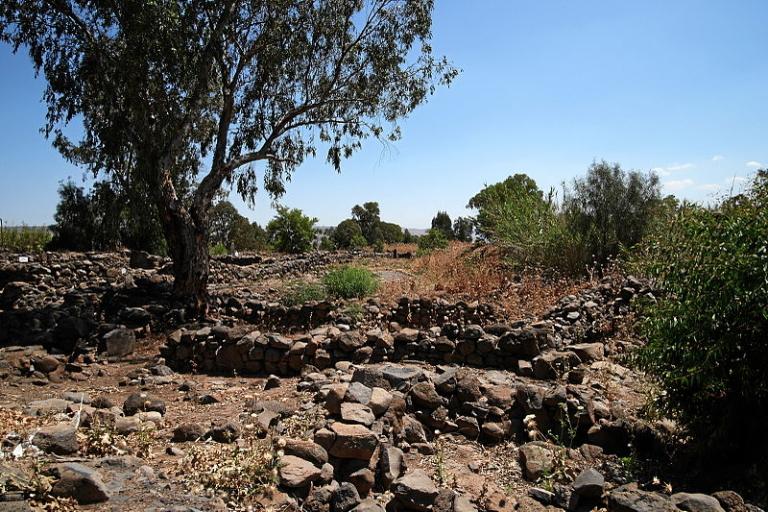
(Photo by Mboesch, from Wikimedia Commons)
Compare 14:12-13
I like the comment in Mark, when Jesus tells the returning apostles to get a bit of rest: “For many were coming and going, and they had no leisure even to eat.”
Today’s members of the Twelve, from what I’ve observed of their schedules, would recognize so hectic a life.
And they never get to retire.
Some critics like to imagine the Twelve wallowing in status, comfort, and perks. Well. I’m very content that the Lord (helped along very nicely by my multitudinous inadequacies and faults) has seen fit to spare me such blessings! I like being left alone, to my own schedule.

Wikimedia Commons public domain photograph by Christoph Matthias Siebenborn (whose last name, if it is authentic, is spectacularly appropriate to the site).
Jesus’ miraculous feeding of the multitude is attested in all four of the gospels, in both John and the synoptics.
It’s important to read it as illustrating not merely Christ’s supernatural power but his compassion. He felt pity for those who were following him because they were “sheep without a shepherd.”
That’s us. Unless we recognize the Shepherd.
Some apostate and anti-Mormon atheists deride “the Mormon god” because, they say, it’s absurd to imagine that the Creator of the cosmos would be concerned about the number of earrings a person wears, whether he or she drinks caffeinated beverages, how he or she dresses, and with whom he or she sleeps.
Still, isn’t that the (scandalous) message of the Bible? That the God of creation cares about particular people? That he’s not Aristotle’s Unmoved Mover, contemplating the only thing in the universe worthy of his notice — himself?
He chose Abraham. Later, he chose Israel. From Israel, he chose Moses. He gave the Israelites instructions about minute details of their diet and their behavior.
Jesus asked, “What is the price of two sparrows — one copper coin? But not a single sparrow can fall to the ground without your Father knowing it” (Matthew 10:29, New Living Translation).
In this story, the God who formed the stars is represented as caring about providing some bread and fish for a ragtag crowd of Galilean peasants.
Let the atheists mock. Latter-day Saints are in good, and solidly Abrahamic, company on this issue.











